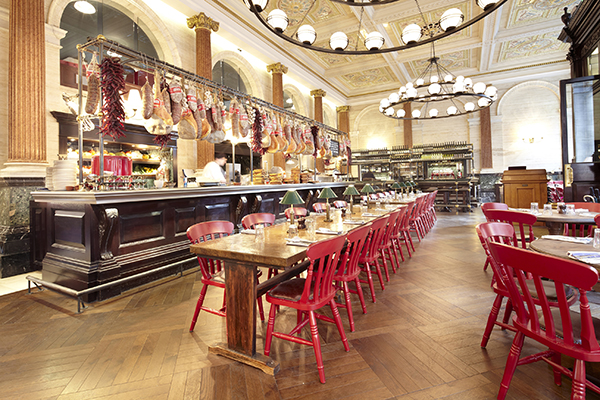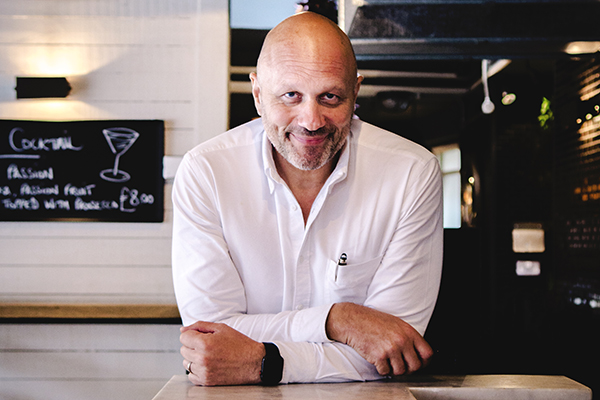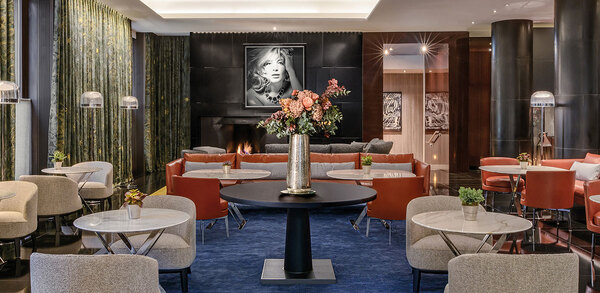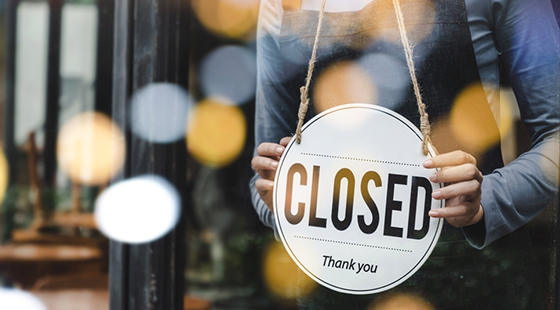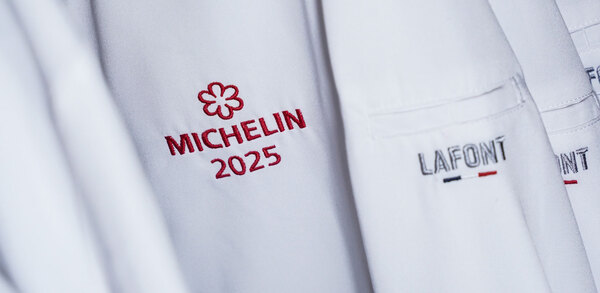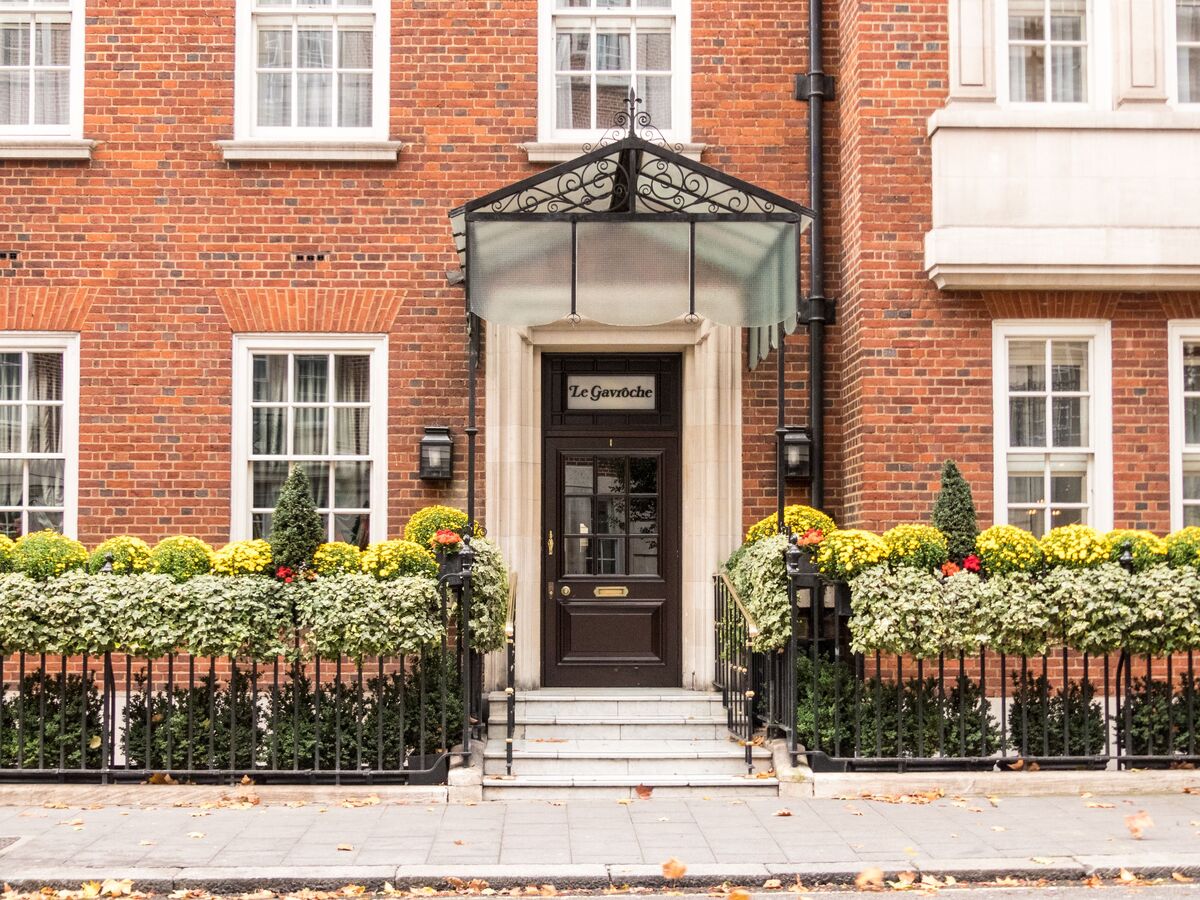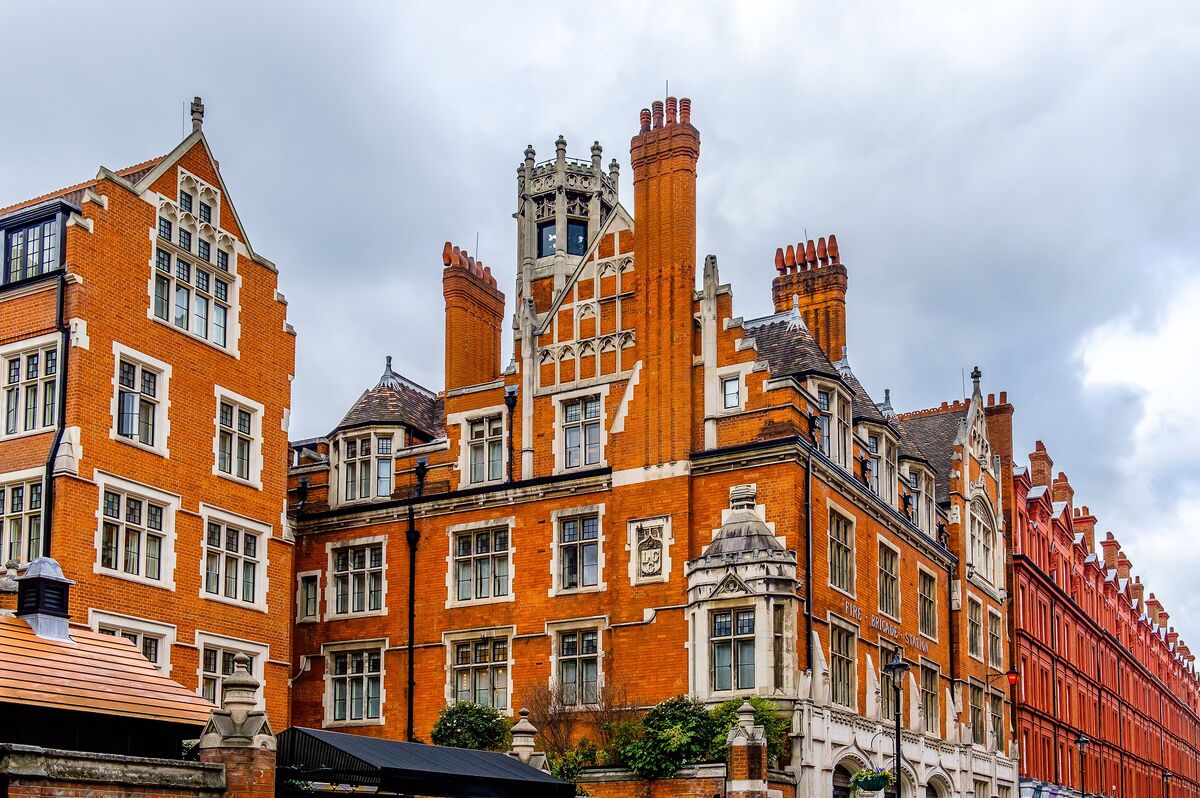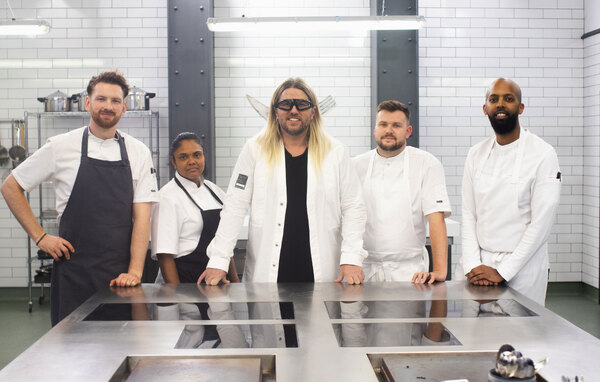Jamie Oliver's relaunch recipe: chief executive Jon Knight reveals all
Jon Knight, chief executive of the Jamie Oliver Restaurant Group, tells Emma Lake how he plans to rethink and relaunch the restaurant chain with a fresh focus from its celebrity chef owner
Bruised, a bit bloodied but optimistic for the future, Jon Knight, chief executive of the Jamie Oliver Restaurant Group, has dusted himself off after six months that have seen the closure of 12 sites and the business entering a company voluntary agreement (CVA).
We meet in Jamie's Italian in Oxford, where preparations are under way for a celebration of the brand's 10th birthday. The George Street restaurant was Jamie's Italian's first site and opened to great fanfare in 2008, with customers queueing round the block.
A decade on, Knight has been the only operator to speak publicly about the decision to pursue a CVA, acknowledging that his group lost its way and failed to meet the expectations of the celebrity chef's enthusiastic fans.
Knight describes the decision as the toughest he's ever made, but insists there is still a reason for a party: "We haven't spent much time in the past seven months celebrating and we thought it was important to say we have been here for 10 years. We've been through some tough times, but now it's about standing up and saying we're on a good path. We know what we've done and we know what we've got to do to make it better.
He says the task of "making it better" is even more daunting than the CVA. The agreement was a process to put the business on a sustainable financial footing, and he says that once the creditors had agreed the plan, with more than 98% approval, the real work began.
Knight, along with food and beverage director Ed Loftus, is in the middle of a country-wide tour speaking to Jamie's Italian gold card holders (a loyalty scheme for diners) to discover what needs to be done. He describes the process as "an awakening", with regular customers telling the pair that they did not know the group made fresh pasta at every site each morning, or that the food was carefully sourced to be sustainable, responsible and authentic. They were also told that the menu was not delivering inspiring Italian cuisine or bringing Oliver to life.
Four months on, Knight says: âOur unique selling point is Jamie and weâve got his name above the door. Everyone knows him, every-oneâs got an opinion on him, heâs so well-known, why wouldnât you use him? So we are using him, and he is absolutely loving it. He loves cooking with the guys, he developed the menu with Ed and his handwriting is all over everything â" itâs great, I couldnât ask for more.â
Oliverâs input has included television appearances on the likes of ITVâs Good Morning Britain and This Morning as well as the BBCâs Saturday Kitchen. On top of this, the chef publishes social media posts explaining to his 20 million Twitter, Instagram and Facebook followers why they should visit his restaurants.
His posts, which include a weekly video in which he introduces and prepares a dish being offered at his restaurants, seem to be having an impact. When Oliver featured a new dish, Jamieâs steak tagliata, it became the best-selling item by two to one.
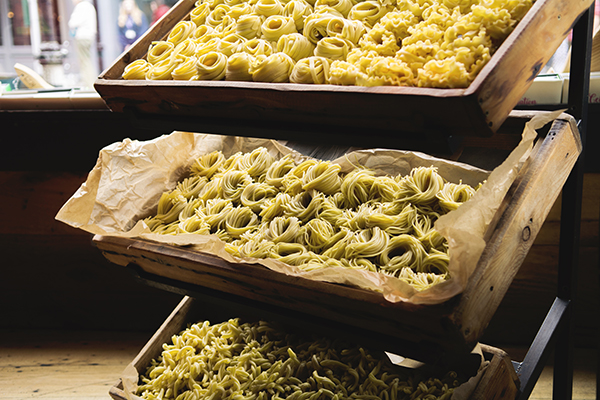
Knight explains: âBecause of the chefs, because of the people, because he has an absolute affinity with all of the restaurants and he doesnât want to see them fail. He absolutely hates how hospitality can be so inhospitable sometimes. Heâs 100% committed. He could have walked away at any stage through this, but he hasnât. He loves it â" itâs in his blood.â
The âcrisis on the high streetâ has been covered extensively in the press, but Knight views the period as one of âcorrectionâ and hopes to see a far more resilient sector emerge from the other side. He explains: âIf you look at the pub industry, not so long ago it was struggling. So absolutely, this sector can come around. I think weâve been very busy blaming lots of factors that are out of our control, whereas what weâve got to do is create a business that is robust and can stand on its own two feet while waiting for that period of certainty to come.â
Factors such as business rates, food price inflation, consumer confidence, falls in the value of the pound and, of course, Brexit have been cited repeatedly as businesses announce their intention to renegotiate terms with landlords and close sites that have been rendered loss-making, but Knight is adamant that the end of the high street is far from nigh.
He says: âI look at the number of people walking past our doors on any particular day and if you were able to convert them, thereâs enough traffic to sustain a restaurant.â The business of converting that footfall has started with staff.
Both Knight and Loftus acknowledge that the CVA hit morale, particularly given the intense and enduring media interest, which included headlines detailing £71.5m of debt â" described by Knight as âirresponsibleâ. He explains: âYou can take a snapshot of any business and there is an amount that is owed to people. We pay all our suppliers within terms and weâre still trading. If we hadnât pulled people through, Iâm not sure what the incentive would be to trade with us. Even in the darkest days of the CVA, every single person was paid on time, in full â" there was never a question about that. Our tax is paid up.â
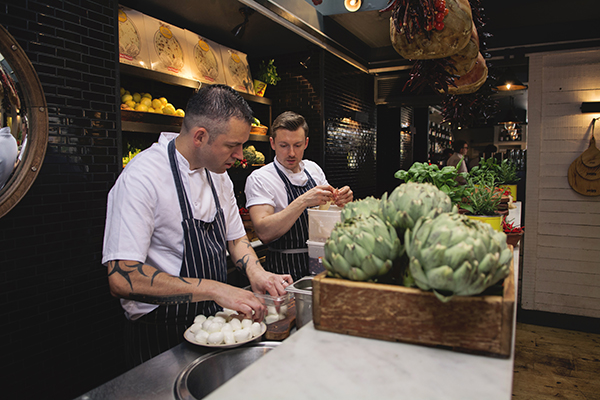
Lean and keen pricing
The food and beverage directorâs key focus is working with Oliver to develop a new menu that communicates the stories behind dishes and suppliers, excites customers, hits accessible price points and meets the requirements of the celebrity chefâs healthy eating campaigns.
Hitting price points was key for Knight and Loftus, who are eager to move away from the sectorâs reliance on discounting to drive footfall. The well-received steak tagliata dish was born out of a desire to have a competitive steak offer and it is priced at £15.50; £2 has been knocked off the price of the restaurantsâ original beef burger; and margarita pizzas and several pasta dishes are available for less than £10.
Loftus explains: âItâs giving people an opportunity to enter into the menu at a good value price point and, once theyâre in, to hear about the great stories. We donât want people to feel intimidated by pricing, although our best-selling dishes are the more expensive offers, such as lobster ravioli and seafood linguine.â
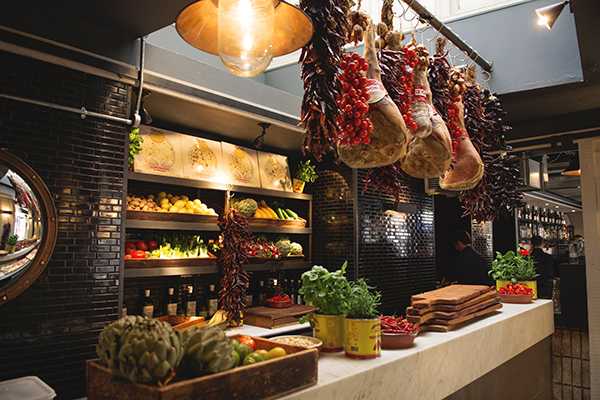
But these credentials donât stop a seemingly endless stream of headlines, including: âJamie Oliverâs own Italian restaurants serve meals bursting with fat and sugarâ, âJamie Oliver outed for promoting sugary muffinsâ and âHands off Tony the Tiger, Jamie. Nanny-state food policy isnât gr-r-reat!â. How much of a problem is media criticism like this?
Loftus says: âHeâs not banning things â"thatâs where the media tend to put a spin on it. Itâs about education and offering the right choices. Heâs not 100% healthy all the time â" nobody can live their life like that â" and I donât think he pretends to.â Knight adds: âThe one person who never seems to be affected is Jamie, because he genuinely believes what heâs doing is right. You see the strength he takes from his own personal convictions and what heâs trying to do for the public around informed choice. But, yeah I do get bloody annoyed, it does your head in.â
From the high street to the high seas
While Knight works to increase the number of people walking through the doors, the group is continuing to pursue opportunities away from the UK high street. Earlier this year the group announced an exclusive 10-year deal with contract caterer Aramark to move its concepts into workplaces, the first of which is set to be launched âimminentlyâ.
Knight says: âA lot is predicated on how well we open that first one; I think that will go really well and give us the fuel to open more. Thereâs no reason not to achieve a double-digit number of sites by the end of 2019.â
The group also has partnerships with travel caterer SSP with plans for two new openings in UK airports as well as its first foray into out-of-Europe airport space. It also has a relationship with Royal Caribbean, which opened the sixth on-ship Jamieâs restaurant in June. Internationally, the business is also continuing to grow, thanks to Oliverâs global reach, with 20 openings planned this year.
Knight says these income streams give him âthe breathing spaceâ he needs to fix Jamieâs Italian, but he has no plans to stand still in the UK market: âI havenât gone through this and taken the guys through all that pain to just stand still. We have a growth strategy. I donât think youâll see us opening new restaurants for maybe 18 to 24 months, but thatâs appropriate and thatâs about us re-establishing and learning again as we grow regarding our financial stability and customer base.
âThe nice thing is that itâs not just the negatives, weâve got some positivity back in the business and weâre enjoying it.â
Jon Knight on…
…industry pressures âI know how these external factors are affecting my business and my restaurant chain. As an industry, if we all work together, and we work collaboratively, then Iâm sure weâd get a better response than doing it piecemeal. I donât think we do enough of that.â
…the chef shortage âAs an industry weâre all suffering and thereâs lots more competition, lots of openings and people paying silly money. Not that people arenât worth paying well for, but to pay a third more than the going rate is untenable. Weâre doing the best we can and putting money into training and investment in staff to improve retention.â
…the CVA âThe reason we did the CVA was to put ourselves on a better financial level of robustness, which weâve done. If we were doing that as an industry and people were listening, then you might not see what weâre seeing on the high street.â



